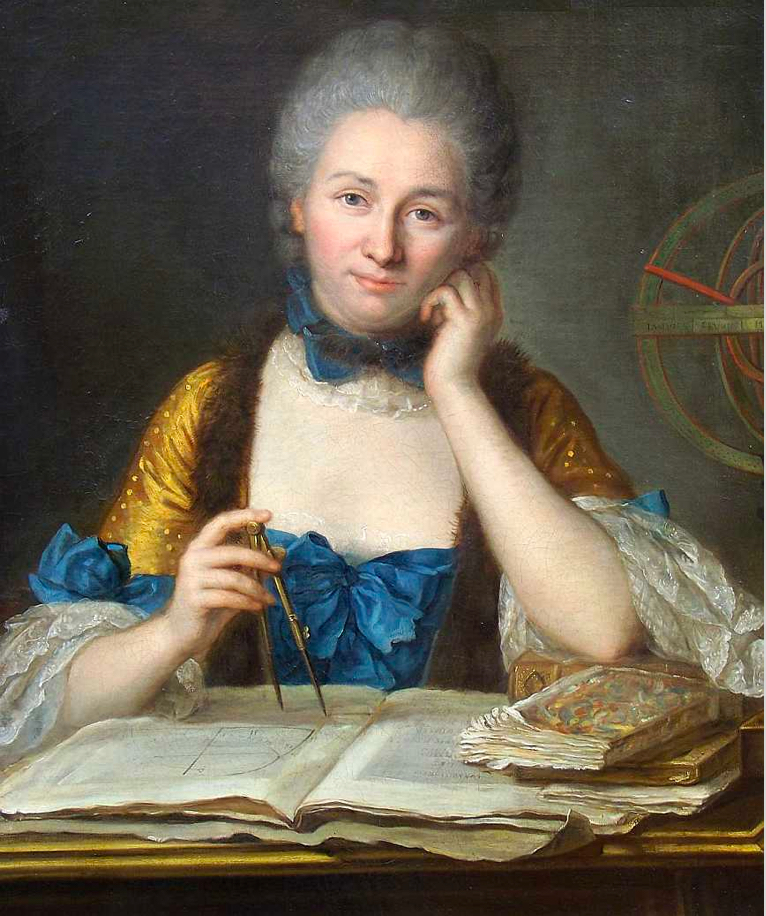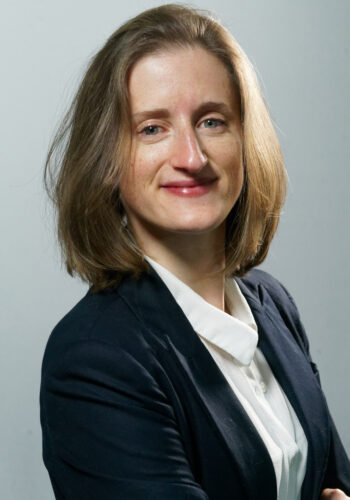POURQUOI LA TECH ?
Principalement pour deux raisons : l’aspect concret de la discipline ainsi que la nouveauté. J’évolue dans un métier où je fabrique des objets, ça n’a rien d’abstrait, c’est bien réel et technique à la fois. Parce que technologie rime souvent avec innovation, elle doit sans cesse évoluer, se réinventer. Il n’y a rien de monotone dans cette discipline et c’est ce que j’aime.
VOTRE PARCOURS ?
D’une certaine manière, c’est plus la technologie qui m’a trouvé. J’ai commencé mes études sur les bancs de la fac avec une spécialité physique-chimie pour ensuite orienter mon parcours en chimie. J’ai fait mes premières armes en entreprise dans un laboratoire travaillant sur le textile sportif. Après quelques mois de recherche j’ai répondu à une annonce pour le CNRS et quatre ans plus tard, le bouche à oreille à fait son effet et je me suis retrouvée au laboratoire III-V Lab (Thales-Nokia-CEA) sur le site de Palaiseau.
VOTRE PREMIÈRE EXPÉRIENCE PROFESSIONNELLE DANS LA TECH ?
À l’IEMN (Institut d’Electronique, de Microélectronique et de Nanotechnologie) où j’ai découvert pour la première fois l’univers riche du silicium et ce qu’était une salle blanche de l’intérieur. Je remercie les personnes qui m’ont fait confiance malgré le fait que je n’avais pas de connaissances, ni d’expériences dans ce domaine.
VOUS FAITES QUOI AUJOURD’HUI ET POURQUOI ?
Je travaille toujours en salle blanche en tant qu’Ingénieure R&D mais j’ai changé de matériaux. Aujourd’hui, j’exploite toutes les propriétés électro-optiques de l’arseniure de gallium en fabricant des lasers. La longueur d’onde sélectionnée sur ces lasers permet notamment de pouvoir intégrer ce composant dans des horloges atomiques.
VOS ATOUTS POUR CE POSTE ?
Ma première expérience en salle blanche m’a bien évidemment été utile lors du recrutement. Avoir également un autre profil avec une formation un peu différente a permis aussi d’apporter une autre vision à l’équipe. Pour la suite, je pense que la curiosité et la motivation sont deux éléments clés dans ce type de métier.
VOS DÉFIS PASSÉS, VOS RATÉS, VOS GRANDS MOMENTS DE SOLITUDE ?
Lorsque j’ai su que ma candidature était retenue au CNRS alors que je n’avais aucune formation dans ce domaine précis, je suis passée par ce moment de solitude en me demandant si j’allais y arriver. Finalement, c’est un défi que j’ai accepté de relever et je ne le regrette pas. Les personnes qui m’ont accompagnées ont su me mettre en confiance et respectivement me faire confiance.
VOS MEILLEURS MOMENTS, LES SUCCÈS DONT VOUS ÊTES FIÈRE ?
Lorsque j’ai fabriqué mon premier composant et que je l’ai observé au microscope électronique à balayage. On voit toute la finalité de plusieurs mois de travail où chaque étape a été optimisée au maximum et on observe sur une échelle micrométrique, un objet qui ressemble à une cathédrale. D’un point de vue personnel, mon premier semi-marathon avec le lever de soleil sur la méditerranée comme décor. Un moment inoubliable.
DES PERSONNES QUI VOUS ONT AIDÉE/MARQUÉE OU AU CONTRAIRE RENDU LA VIE DIFFICILE ?
Il y en a eu oui. Dans les deux cas, elles m’auront aidé à me dépasser et à m’amener là où je suis. Au départ rien ne me prédisposait à faire une carrière scientifique. Ma sœur aînée a compris que le problème ne venait pas de moi mais de la manière dont on me présentait les choses, j’avais une logique différente. Avec son aide et du travail personnel, je suis arrivée à surmonter ces obstacles et à aimer les sciences.
VOS ENVIES ET DÉFIS À VENIR ?
Des défis, j’ai l’impression de n’avoir que ça ! Parce que je travaille maintenant sur d’autres matériaux, j’ai encore pleins de choses à explorer. J’aimerais également enrichir mon horizon en publiant des brevets dans l’équipe où je suis. De nouvelles aventures en perspectives je l’espère !
ET VOUS FAITES QUOI EN DEHORS DE VOTRE TRAVAIL ?
J’ai deux passions dont j’ai failli faire des métiers : le dessin et le sport. Je continue de les pratiquer, le dessin, plus personnellement et le sport, plus collectivement. Dans toutes mes expériences professionnelles, le sport a d’ailleurs contribué à mon intégration. Entre personnes qui partagent une même passion on se comprend.
VOS HÉROÏNES (HÉROS) DE FICTION, OU DANS L’HISTOIRE ?
Léonard de Vinci sans hésiter. Il y a tellement mots pour le définir : peintre, ingénieur, visionnaire, anatomiste… En ayant vu beaucoup de livres qui présentaient ses carnets, on peut voir à quel point il s’est basé sur l’observation de ce qui l’entourait pour inventer. Tout en regardant, il cherchait à analyser, à décortiquer un mouvement pour tenter de le recréer mécaniquement. Une source d’inspiration sans aucun doute.
VOTRE DEVISE FAVORITE ?
« Toutes les batailles de la vie nous enseignent quelque chose, même celles que nous perdons ». A partir du moment où on apprend de ses erreurs, on peut avancer et aller au-delà de ses peurs et même se surpasser. Bien souvent, on peut voir la réussite d’une personne sans voir tout le chemin qu’elle a parcouru pour y arriver.
UN LIVRE À EMPORTER SUR UNE ÎLE DÉSERTE ?
Tout dépend si je dois survivre ou pas sur cette île. Si c’est le cas, j’opterai pour un manuel de survie. Qui plus est, j’apprendrai beaucoup de choses qui combleront l’ennui de la solitude. S’il n’y a pas d’enjeu de ce côté-là, une édition intégrale des œuvres de Jules Verne, je pense que ça aiderait tout autant.
UN MESSAGE OU UN CONSEIL AUX JEUNES FEMMES ?
Votre vie vous appartient, ne laissez personne vous dire ce que vous devriez faire. N’hésitez pas non plus à faire des salons des métiers. Je regrette qu’il n’y ait pas eu plus de rencontres dans mon lycée dans ce sens. Enfin, beaucoup de femmes s’interrogent ou s’interrogeront sur l’équilibre entre carrière et vie de famille. Je pense que ce n’est pas incompatible et ça ne devrait pas l’être. Une égalité sur le rôle des deux parents et leurs droits respectifs au sein de l’entreprise est en train de se mettre en place petit à petit. Si la pandémie nous force à bien comprendre une chose, c’est qu’un équilibre entre vie de famille et vie en entreprise est essentiel.


